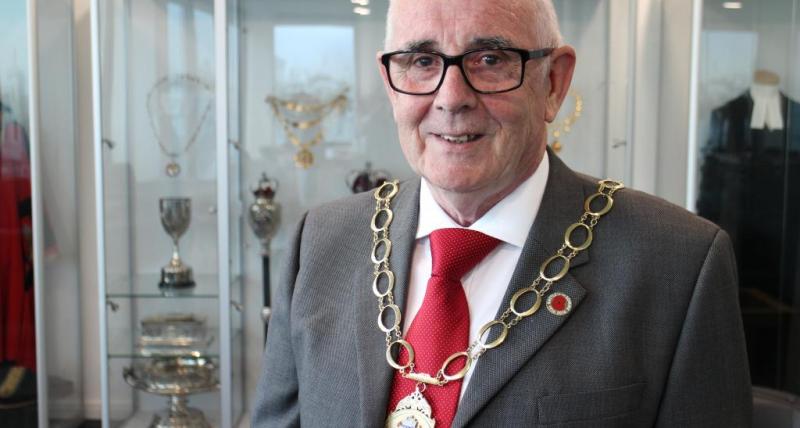
The annual Trafalgar Day ‘Toast the Admiral’ event is being held on Sunday (21 October) at Collingwood Monument, Tynemouth.
This is the ninth year that North Tyneside Council has hosted the event for members of the public, invited dignitaries and honoured guests.
North Tyneside has the greatest monument to the Admiral at Tynemouth, looking out to sea, which provides the setting for the toast.
Chair of North Tyneside Council, Cllr Tommy Mulvenna (pictured) said: “The council hosts this special event to commemorate Trafalgar Day and raise awareness of the achievements of our very own Admiral Collingwood and his place in the nation’s history.
“Our pride in our maritime history is also matched with our pride in our Royal Navy. It is with great pride that we welcome Commander Graeme Deighton RNR the Commanding Officer for HMS Calliope to deliver this year’s address on behalf of Commodore Phil Waterhouse ADC RN, Naval Regional Commander, Northern England.”
The event gets underway at 11.40am with the toast taking place at 12pm.
The toast happens at 12pm as this was the time at which the first shot was fired in the Battle of Trafalgar on 21 October 1805.
Schedule for the event:
- 11.40am – Gathering of invited guests and the general public
- 11.50am – Welcome by Chair of North Tyneside Council, Cllr Tommy Mulvenna followed by the raising of the Blue Ensign
- 11.55am – Oration delivered by Commander Graeme Deighton RNR on behalf of Commodore Phil Waterhouse ADC RN, Naval Regional Commander, Northern England
- 12pm – Toast to Admiral Lord Collingwood.
ENDS
Notes to Editors
Vice-Admiral Lord Collingwood
Born in Newcastle on 26 September 1748, Collingwood’s naval career through the American War of Independence and the French Revolutionary and Napoleonic wars was an outstanding example of duty and courage.
Admiral Collingwood was famously second in command to Admiral Nelson at the battle of Trafalgar. His ship, Royal Sovereign was the first to fire upon the combined enemy fleet of French and Spanish ships and he was the most senior officer left standing when the battle had been won. Taking command of the British fleet, his skill as a seaman and commander ensured that no British ships were lost in the fierce storm that followed the action.
The respect that Collingwood earned was not confined to the British Navy, after Trafalgar he was able to negotiate with the Spanish at Cadiz to ensure that the wounded of all nationalities were cared for.
Admiral Collingwood was a highly-skilled commander who saw action in the battle of the ‘Glorious’ first of June under Admiral Howe, the battle of Cape St Vincent under Admiral Sir John Jervis and, after Trafalgar, he took over the Mediterranean command from the fallen Nelson, only relinquishing when he was near death, five years later in 1810. Post Trafalgar he was instrumental in ensuring that the complexity of the Mediterranean command was handled with the various skills of a viceroy, a politician, a diplomat and of course a naval commander.
